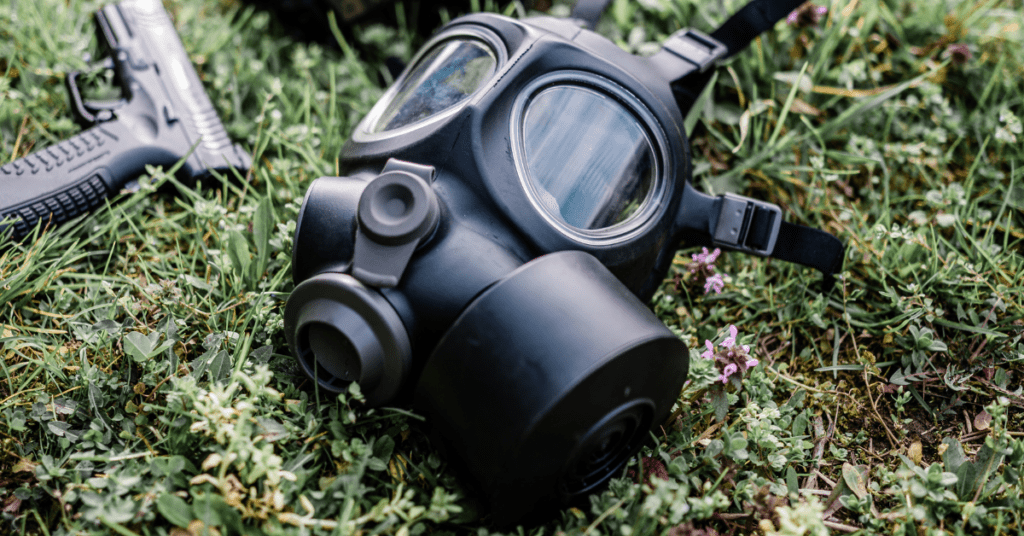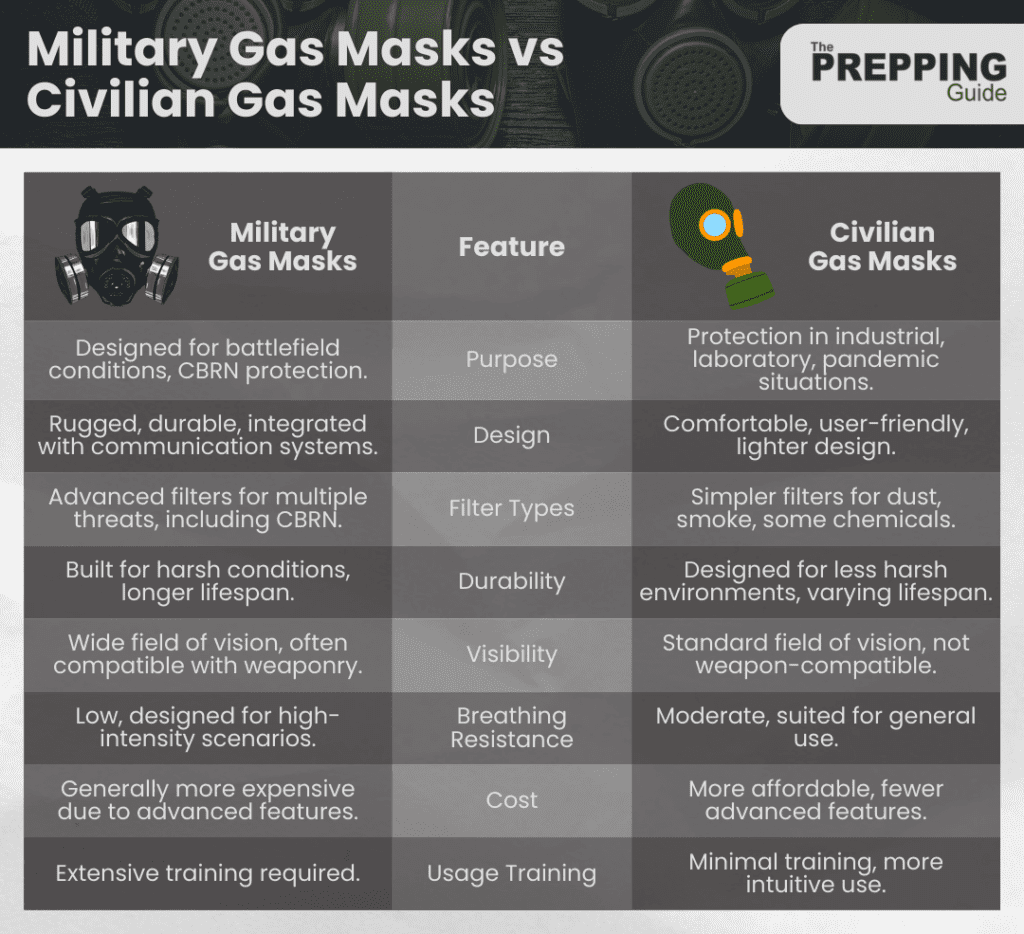
Understanding the Capabilities of Military Gas Masks
Military gas masks provide reliable protection against a range of threats, from chemical and biological agents to radiological and nuclear hazards. Their advanced filtration systems and airtight seals ensure your safety in critical situations, making them a vital addition to your preparedness gear.
How Military Gas Masks Work
When it comes to military gas masks, it's important to understand how they work. These masks are more than just a covering; they are sophisticated devices designed to protect you in extreme conditions.
Military gas masks use a combination of physical and chemical filtration to provide you with the utmost protection. Physical filtration blocks particles like dust and debris, while chemical filtration uses activated carbon and other substances to neutralize harmful chemicals and gases. This dual approach ensures that you're safeguarded against a wide range of airborne threats, from smoke and particulates to toxic gases.
Another key aspect of these masks is the air purification system. Military gas masks have complex systems that not only filter but also actively purify the air you breathe. This system is crucial in environments where the air is heavily contaminated with harmful agents, providing you with clean, breathable air even in the most hostile conditions.
Comparing Military and Civilian Gas Masks
Military gas masks differ from civilian masks in terms of their standards and capabilities. Military gas masks are designed to meet stringent military specifications, ensuring they can withstand extreme conditions and provide broader protective capabilities compared to civilian models.
For instance, military gas masks are tested to protect against a wider range of chemical and biological agents. They often include additional features like voice diaphragms for communication and robust visors for better visibility. In contrast, civilian masks might not offer the same level of comprehensive protection, being more focused on specific threats like industrial chemicals or pollution.

Military Gas Masks vs. N95
Military gas masks and N95 respirators serve different purposes. N95 masks are primarily designed for filtering out particulate matter and are effective in environments where you need protection against dust, smoke, or certain pathogens. However, N95 masks do not offer protection against chemicals or gases.
In contrast, military gas masks provide comprehensive protection against a broader range of threats, including chemicals, gases, and particulates. Their robust design and advanced filtration system make them suitable for more hazardous environments where N95 masks would be inadequate.
Effectiveness Against Various Threats
Military gas masks are your first line of defense against a range of hazardous agents. They protect you from chemical agents like nerve and blister agents, biological threats such as bacteria and viruses, and even radioactive particles. This level of protection is achieved through a combination of advanced filtration technology and robust sealing, ensuring that harmful agents—————————————————————————————————————————————————————————————–
By: thepreppingguide
Title: How Effective Are Military Gas Masks?
Sourced From: thepreppingguide.com/how-effective-are-military-gas-masks/
Published Date: Thu, 01 Feb 2024 07:51:48 +0000

